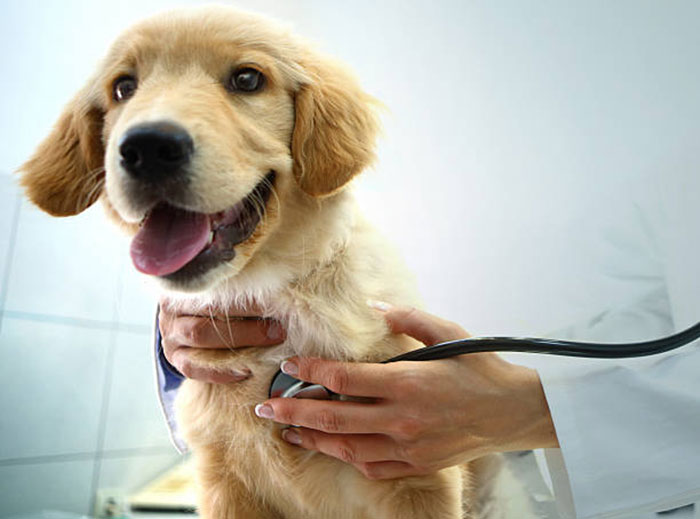As pet parents, we share a deep, unspoken bond with our furry companions. They bring us joy, comfort, and unconditional love, and in return, we do everything we can to ensure they’re happy and healthy. But just like humans, pets are vulnerable to illnesses, including cancer, and because they can’t tell us when they’re in pain, it’s up to us to watch for signs and take action.
Cancer in pets is more common than many realise, but with early detection, treatment options, and compassionate care, there’s hope. Recognising the signs of cancer early can make all the difference, and regular veterinary check-ups play a vital role in keeping your pet healthy.
Why Regular Vet Check-Ups Are Essential
Annual or semi-annual vet visits are critical for catching health issues early, and cancer is no exception. Veterinarians are trained to spot early warning signs that may go unnoticed at home. During these check-ups, your vet will perform a thorough examination, checking for lumps, bumps, weight changes, and other abnormalities. Routine screenings, especially for senior pets, can often reveal underlying health concerns, allowing you to start treatment before the condition progresses.
Early intervention in cancer cases can mean the difference between life-extending treatments and options that may only manage pain. Regular visits to your local Roleystone vet will give you and your pet the best chance at a longer, healthier life together.
Common Signs of Cancer in Pets
Understanding what to look for can help you identify potential warning signs. Here are some of the most common symptoms that may indicate cancer in pets:
Unusual Lumps or Bumps
While not every lump is cancerous, any new growth should be examined by a vet. If you notice a lump that seems to be growing, changing shape, or doesn’t respond to treatment, it’s essential to have it assessed as soon as possible. A simple biopsy can help determine if it’s malignant or benign.
Sudden Weight Loss or Loss of Appetite
A drastic drop in weight or a decrease in appetite could indicate that something isn’t right internally. While there are many reasons pets may lose interest in food, unexplained weight loss is a red flag and should prompt a vet visit.
Persistent Lethargy or Low Energy
Pets with cancer may show signs of fatigue or lack of interest in activities they once enjoyed. If your usually active pet suddenly seems tired, listless, or uninterested, it could be their way of telling you they’re not feeling well.
Difficulty Breathing or Persistent Coughing
Respiratory symptoms can sometimes signal a form of cancer affecting the lungs or throat. If your pet is experiencing persistent coughing, laboured breathing, or unusual sounds while breathing, it’s best to consult your vet.
Sores That Don’t Heal
Just like with humans, sores or wounds that won’t heal can be a sign of a deeper health issue. Pets who have sores that don’t respond to treatment may have an underlying condition affecting their body’s ability to recover.
Changes in Bathroom Habits
A pet who suddenly has difficulty urinating, defecating, or is experiencing frequent accidents might be struggling with a health issue. Gastrointestinal or urinary cancers can cause these symptoms, so any sudden change in bathroom behaviour warrants a vet check-up.
Abnormal Odors
If your pet’s breath, skin, or ears develop an unusual or foul odour, it may indicate an infection or tumour. This is especially true if the smell doesn’t improve with regular cleaning or grooming.
Lameness or Stiffness
Cancer in bones, joints, or muscles can lead to lameness or a reluctance to move. If your pet appears stiff, limps, or hesitates to jump, run, or play, it’s essential to have these symptoms evaluated to rule out underlying causes, including cancer.
How a Veterinarian Can Help
Vets are trained to recognise subtle changes and understand the nuances of pet health. If you notice any of the symptoms above, it’s always best to consult a vet, who can perform diagnostic tests to determine the cause. Common tools for cancer diagnosis in pets include:
Blood Tests – Help to identify abnormalities in organ function or unusual cell counts.
X-rays and Ultrasounds – Allow vets to visualise organs, bones, and internal structures to identify tumours or abnormalities.
Biopsies and Fine-Needle Aspirates – These tests involve taking samples of lumps or growths for analysis.
Once a diagnosis is made, your vet can guide you through the treatment options. Depending on the type and stage of cancer, treatments can range from surgery and chemotherapy to less invasive options like radiation or immunotherapy. Your veterinarian will work with you to create a treatment plan that best supports your pet’s quality of life.
Early Detection – A Gift of Time
While hearing a cancer diagnosis for your pet can be overwhelming, early detection provides a chance for treatment options and time to plan. With prompt intervention, many pets can continue to live happy, fulfilling lives, and there are many resources and specialists dedicated to supporting pets and their families through these journeys.
Some cancers, especially those in older pets, are more challenging to treat, but even in these cases, your vet can offer solutions that manage pain and improve comfort. Working closely with a compassionate vet team can make a world of difference in your pet’s journey, ensuring they’re treated with dignity and love every step of the way.
Supporting Your Pet’s Wellbeing Every Day
Beyond vet visits, there are things you can do at home to keep your pet in good health and monitor for any changes:
- Routine Grooming and Body Checks – While grooming or petting your pet, gently feel for lumps, bumps, or sensitive areas. Taking note of any new growths or unusual behaviour can help you spot potential issues early.
- Balanced Diet and Exercise – Proper nutrition and regular exercise can boost your pet’s immune system, keeping them healthy and more resilient.
- Keep a Health Journal – Recording any symptoms or changes in your pet’s behaviour, appetite, or energy can help you track patterns over time, making it easier to report concerns to your vet.
Staying Vigilant and Compassionate
Our pets may not be able to tell us when they’re feeling unwell, but by staying vigilant and proactive, we can give them the best possible care. Being attuned to the signs of cancer in pets and arranging regular vet check-ups are essential steps to protect their health and happiness.
No matter what, know that your dedication means everything to them, offering comfort and love through every step of their journey. So, stay close, stay aware, and remember that these small acts of care make a profound difference in the lives of our beloved companions.
The Local Vet Roleystone Trusts
Railway Avenue Veterinary Hospital is here to help with high quality pet care and services. Conveniently located in Armadale, we are the trusted vet clinic for clients in Roleystone, Kelmscott, and surrounding suburbs. Schedule an appointment online now or call 9497 1547.


